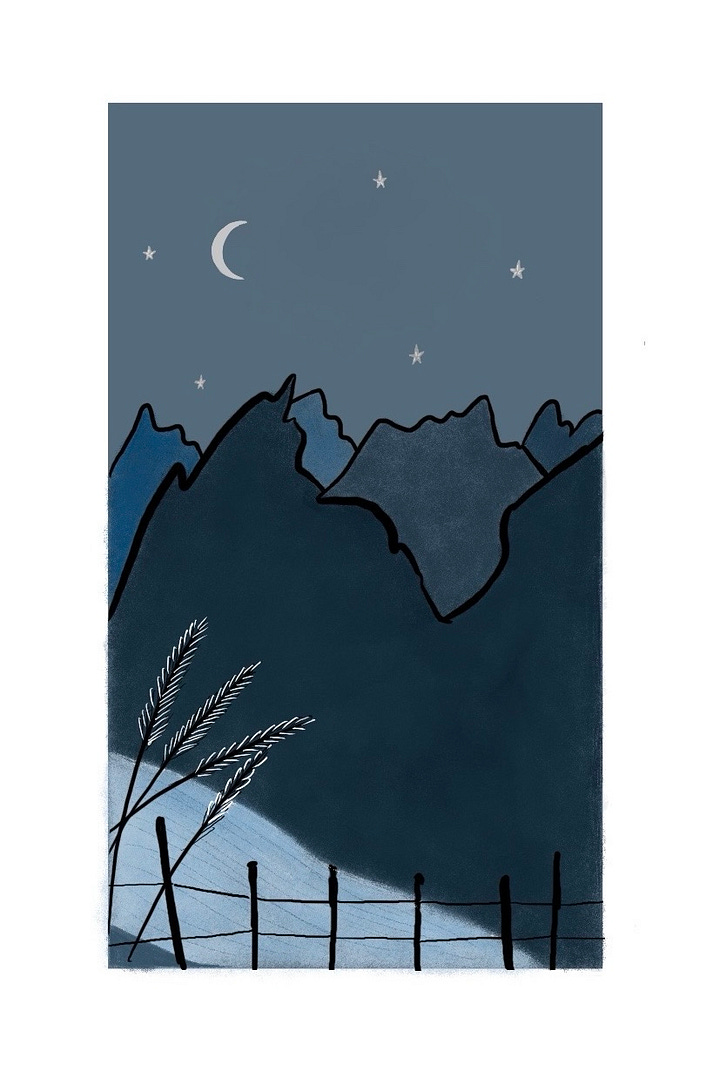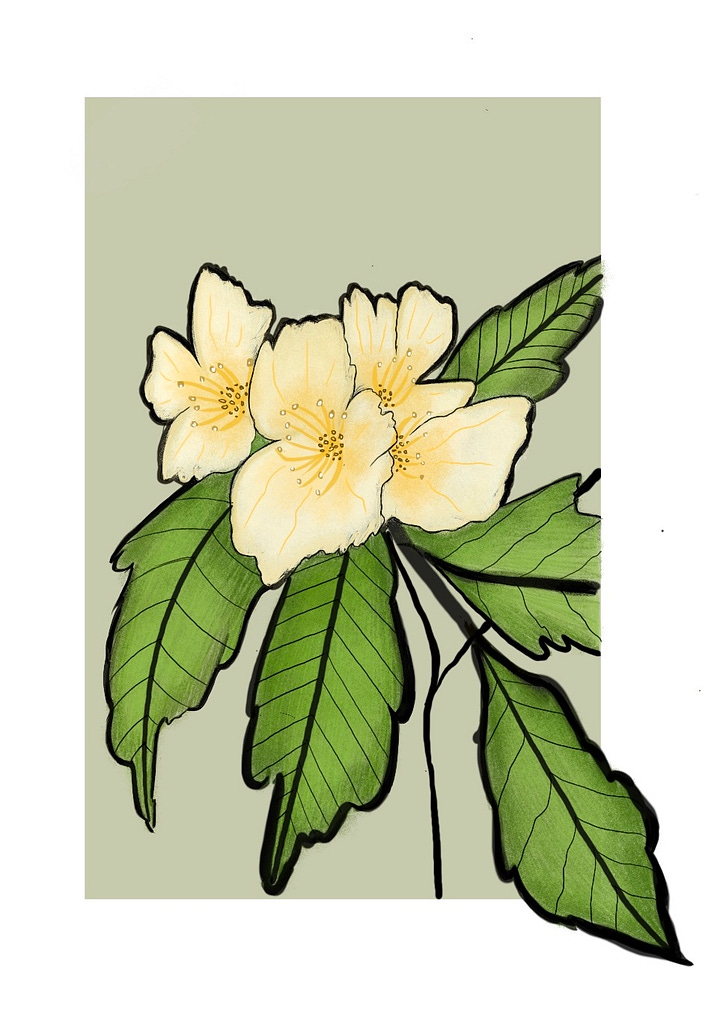Early summer in Japan. Each time the seasons come around, I remember bygone years in flashes. It’s funny how you can find nostalgia in a place you’ve never visited before – in the light, the air, the smell of the forest. Like listening to an old song and yearning for a time in which you did not exist. How it feels oddly familiar, and you find yourself thinking have I been here before?
Life has recently become quite simple. From Tokyo, we drive north, the landscape erupting with wildflowers. We go hiking in the mountains of Northern Honshū, drive to onsen towns to soak in public hot springs, and at night, we sleep in the van in michinoeki rest stops.
Everywhere we go, winter lies just under the surface. In silent ski towns, empty hotels throw cool shadows in the summer light. Ski slopes unwind in carpets of green, and snow lingers on the mountain ridges. Snow melt roars in the valleys, flowing into the onsen towns, the rice paddies and the sake breweries, feeding everything in a constant process of renewal.
In The Wind-Up Bird Chronicle by Haruki Murakami, a shaman-type character called Mr Honda tells the protagonist, “When it is time to go up, find the highest tower and climb to the top. When it is time to go down, descend to the deepest well. When it is time to stay still, stay still.” Now is a time for movement, although whether I am going up or down, I don’t know. The important thing, as Mr Honda says, is to not obstruct the flow.
I’m re-reading Murakami because his books made me fall in love with the idea of Japan when I first read them over a decade ago (yes, I am a bit basic sometimes). I don’t often re-read books, but I wanted something easy and familiar to return to during this summer drift. The Wind-Up Bird Chronicle is a mystery that begins with a missing cat, set in early June 1984 and moving through the summer. Multiple worlds brush up against each other: the macro and the micro, the mundane and the metaphysical. The broad sweep of history, and the everyday moments caught in its flow.
A decade of life has happened between the two readings. The text, of course, remains the same, but how I relate to it has changed. When I first read it, I was dazzled by its surrealism and its slippery dreamscapes, whereas now, I find myself moved by its more mundane details. The married couple searching for their cat, unaware of what it signifies and how much they’ll be changed in the process. There is humour, but there is also sadness. New themes come to the fore. Disappointment and fallibility. The impossibility of ever truly knowing someone. The futility of resisting the current, as it carries us through a series of inevitable changes.
Murakami’s protagonist, at some point in the story, climbs down a dried-up well to “have space to think”. I climb into a filled well of sorts, to do something similar. Many onsens are built from stone, and somewhat resemble shallow wells. Some are situated in gardens, overlooking forest and waterfalls; others are located deeper within a building, and descending to them is like entering a cave. They are quiet, restful places, the men separated from the women. In the company of strangers, you bathe naked, each person alone with their thoughts. It is a solitary kind of intimacy. Sometimes you can hear the movement of water through the dividing wall, see a shimmer of light through a crack. There is someone on the other side; you cannot see them but you can feel their presence.
The tradition of onsen bathing is rooted in Buddhist ritual cleaning and purification rites. Stripped of our clothing, social hierarchies are dissolved, and so too is the ego. Water ebbs at the subconscious. Thoughts come and go. Submerged in water, I observe these thoughts in a detached manner, unemotionally, as if they are not my thoughts but projections flickering across the wall of a darkened room. My overactive mind finds peace, not in not thinking but in letting the thoughts flow onwards. The water in an onsen is never stagnant, always in constant motion, and the sound of it is hypnotic. If I close my eyes, I can feel the edges of things starting to blur. Patterns of light and shadow dancing beyond my eyelids.
Reading Murakami leads me, in a roundabout way, to the Japanese jazz pianist Ryo Fukui. There’s one track in particular that I can’t stop listening to. “Early Summer”, recorded in 1976, seems to reach through time and capture the mood of my present moment. Shimmering piano notes, like a pattern of leaves loosened by the wind. The nervous excitement of summer evenings when everything feels possible. Birds in flight. Pale blue skies slipping into darkness as we turn around mountain bends.
Jazz knows a thing or two about movement. When to rise and when to fall; when to let a passage run its course until it morphs into something else; when to sit still and just listen, even if you don’t understand what the music is trying to tell you. “Early Summer” captures this transience, the sense of not knowing where you might end up – but hey, the summer’s just beginning and the year is still young. You can hear it in Fukui’s playing, something bright and uncertain flowing from his fingertips. Something daring, ever so tentatively, to be happy. We are in the middle of the action, the present tense. The song’s still playing, in 1976 as it is now.
What does early summer taste like? Something refreshing and smooth, perhaps, like slivers of honeydew melon and pear on the first properly hot day of the year.
This is the sort of freshness I am craving, and I find it in a bottle of sake from Hakkaisan Brewery in Niigata Prefecture. A Junmai Daiginjo aged under snow for three years, it’s juicy in a subdued way, bright and delicate on its feet. It brings to mind the alpine valleys we hiked in, the snow was no longer confined to the peaks but sweeping through the valley. Sunlight on the cold river.
We drink it with a seaweed salad, mixed with red apple, edamame, shredded cabbage and soft tofu, tossed together in a koji yuzu dressing. The dressing, made with the same koji that goes into the sake, combines the bright, lifted notes of yuzu with the earthy and savoury notes of the fungus. We eat and drink around a makeshift table put together with car seats. It pulls us into the here and now, as food and drink so often does. A slender moon hangs in the sky, the sounds of the forest around us waking up to summer. It is only a fragment of the story, a tiny, almost inconsequential piece. But the way it catches the light, for a fleeting moment, fills everything with possibility.











Beautifully put Issariya. The spiritual flow of the Japanese novel can be intoxicating, like the country itself.